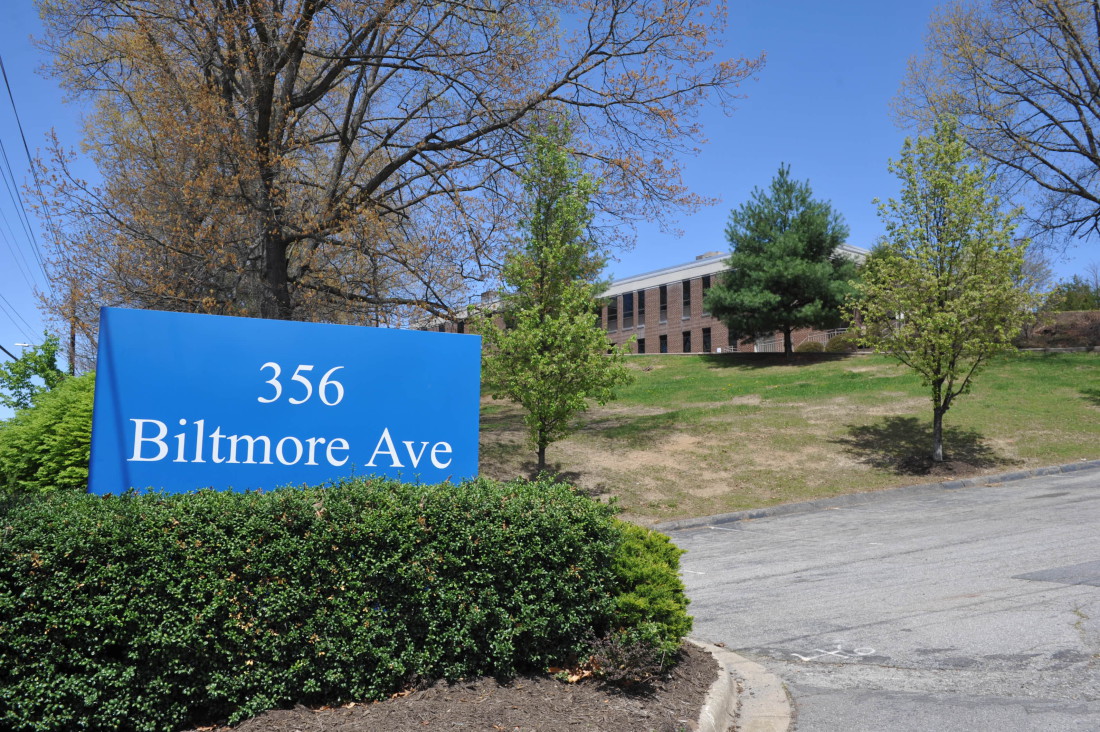A new 24-hour, urgent care center and crisis facility in Asheville aims to do more than place a Band-Aid on mental health and addiction problems. Smoky Mountain LME/MCO, which manages public funds for behavioral health and developmental disability services in Western North Carolina, plans to open the new Biltmore Avenue facility on Jan. 1, 2016, across from Mission Hospital. The new center will be named C3@356 for Comprehensive Care Center at 356 Biltmore Ave.
“This comprehensive care center will operate under a philosophy that recovery from addiction or mental illness is not only possible — it happens,” says Brian Ingraham, chief executive of Smoky Mountain. Earlier this year, the agency secured nearly $2 million in grants from the N.C. Department of Health and Human Services for the new facility. The grant was awarded through the department’s Crisis Solutions Initiative, a statewide effort to improve mental health and substance abuse crisis services, he explains.
The center will fill a gap in mental health care and addiction facilities in Western North Carolina, says Ingraham, serving Asheville and surrounding counties with around-the-clock care. Medicaid and other forms of insurance will be accepted, and state dollars are allocated to cover services offered at the facility.
Its “staff will offer crisis resolution, support, safety and real options for recovery,” Ingraham says, adding, “The co-location of multiple services at one site reflects a vision of community partners to provide ‘whole-person’ care to people in need of medical, clinical and pharmacy services.” The new facility will provide housing, community and peer support, treatment teams and a pharmacy.
It will also address another care crunch: With 16 beds for adults and children, the new center will ease the crowded hospital and emergency room system in Buncombe County. Each year, there are an estimated 150,000 visits to emergency departments across the state for acute psychiatric or addictive disorder crises.
“Care at the emergency department is not targeted to meet these patients’ needs; it’s not sufficient, and everyone who goes to the ER for behavioral health is displacing somebody who needs emergency medical trauma care,” says Genny Pugh, senior director for the Community Collaboration Department at Smoky Mountain.
Preventive care, although more expensive up front, is more effective at treating long-term addiction and mental health issues than merely stabilizing a patient temporarily in the ER, says Pugh. She adds that the cost evens out over the long term as people get quality care upfront, without going through the revolving door of emergency care.
“It’s a culture change for this region. We’ll have under this roof a full continuum of care. In offering that, we’ll be getting ahead of the crisis, to become more of a place where people come in for routine services, crisis prevention and living more successfully in recovery,” says Pugh. “Hopefully we can diminish the number of people in crisis by having something they can access much earlier in the process.”
The Neil Dobbins Detoxification Center, which is across the street, will be repurposed from an adults-only facility into a crisis facility exclusively for youths and children once the new Smoky Mountain center is completed. Dr. Paul Martin, medical director at Dobbins, will transfer to C3@356 and continue to work in the addiction field as the new center takes on the demand from Dobbins.
From January 2010 to December 2011, the Asheville-Buncombe Drug Commission found that Dobbins was running at capacity, typically at a mid-90 percent utilization rate, which can be considered maxed out in the health care industry. It had 432 admissions, with a total annual cost of treatment exceeding $682,000. The number of people seeking treatment for prescription drug addiction at the Dobbins Center has jumped disproportionately since then, says Martin.
Mental health and addiction centers such as C3@356 oftentimes aren’t at the top of the list for budgetary considerations and are usually subject to a reduced budget instead of cash infusions, says Pugh. She describes the past year of planning for the new center as “really intense” and stresses how the health professionals involved are grateful for the funding.
“It’s almost as if the planets have aligned. I don’t know that we often see in our system this kind of partnership, this kind of success in pulling funding together in such a short time period. It is remarkable,” says Pugh. “We’d like to still be around at this facility decades from now, doing good work, and that’s a big part of the responsibility of the implementation here.”




That came about 10 years too late for our family and I suspect, thousands more across WNC. Those of us calling for 24/7 crisis care for adults AND children were treated like we were asking the NC mental health care system to hang the moon.
Hopefully, if this center truly does function as a crisis center (and without a black list of patients they won’t take), people in crisis will be able to stablize and quickly return to their families and communities.